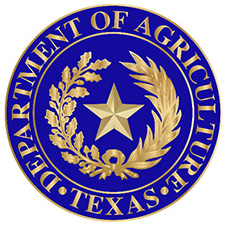Booker sees budget reconciliation advancing debt relief for farmers of color
With a historic program to provide debt relief for farmers of color tied up in litigation, attorneys, advocates and policymakers say that Congress should use the budget reconciliation process to avoid further delay in providing essential relief to minority farmers. “Given the well documented history of discrimination by USDA against Black farmers and other farmers of color, I believe that the courts should allow the debt forgiveness that Congress previously approved to move forward,” said Senator Cory Booker, a member of the Senate Agriculture Committee.
IUCN targets agriculture to address the biodiversity and climate crises
The urgent need for systemic change in order to avoid biodiversity collapse and further climate catastrophe echoed across the opening weekend of the IUCN World Conservation Congress in Marseille, France. In a speech to kick off the congress on Friday, French President Emmanuel Macron stressed the importance of addressing both biodiversity and climate change in an integrated way, saying, “There is no vaccine for a sick planet.”
A bio-economy in the Amazon to prevent deforestation
In the Amazon rainforest of Brazil, a nascent but significant movement is underway to protect the rainforest by connecting small-scale producers tapping rubber trees with multinational brands. The links give settlers and indigenous groups a means to make a living from the forest, although it hasn’t been strong enough to counter the growing trend to cut trees for beef cattle ranching.
Today’s Quick Hits
More extreme winter weather: Climate change is causing more frequent contortions of the “polar vortex” of high-altitude Arctic winds, increasing the potential for severe winter weather outbreaks like February’s Texas freeze. (InsideClimate News)
Rats, drought and labor shortages: Stocks of palm, soy, canola and sunflower oils have been driven to their lowest levels in a decade by “labour shortages, heatwaves and vermin infestation.” (Reuters)
Right whale decline: New research says climate change drove North Atlantic right whales beyond their traditional feeding grounds, to waters where they are at heightened risk of entanglement in fishing gear. (New York Times)
Tyson strikes deal with unions: Labor unions agreed to support a Covid-19 vaccine mandate, and in return the company will back a new paid sick-leave policy for workers. (Wall Street Journal)
On The Calendar
Tuesday
Agriculture Secretary Tom Vilsack announces a grant program that will provide assistance for farm and food workers affected by the pandemic, 1 p.m. ET. Earlier this year, the USDA earmarked $700 million for grants to reimburse producers, processors, distributors and farmers markets for personal protective equipment and other worker protection measures associated with the pandemic.
Purdue University releases the monthly Ag Economy Barometer, a gauge of the health of the agricultural economy.
USDA releases weekly Crop Progress report, 4 p.m. ET.
Wednesday
Rosh Hashanah ends at sundown.
USDA releases annual Food Security in the United States report, 9 a.m. ET. It will be the USDA’s first comprehensive report on hunger during the pandemic. Hunger rates fell to an all-time low of 4 percent in 2019 but soared during the pandemic. Food stamp enrollment, 42.1 million at latest count, is 6 million higher than before the coronavirus. Census Bureau surveys have indicated food insecurity rates doubled, or more, and food banks were overwhelmed with demands for help.
USDA releases annual Citrus Fruits report, 3 p.m. ET.
Thursday
Farmdoc Daily holds a webinar, “Grain outlook,” noon ET.
Friday
House Agriculture Committee votes on its $89.1 billion portion of the $3.5 trillion jobs and climate change legislative package, noon ET, 1300 Longworth. House committees were told to submit their proposals by Sept. 15.
USDA releases monthly Crop Production and WASDE reports, noon ET. Traders expect the USDA to increase modestly its estimates of the corn and soybean crops. In mid-August, USDA said the corn crop, at 14.75 billion bushels, would be the second-largest on record and the soybean crop, at 4.339 billion bushels, would be the third-largest ever.
Sunday
CropLife America holds annual meeting, Aventura, Florida.











